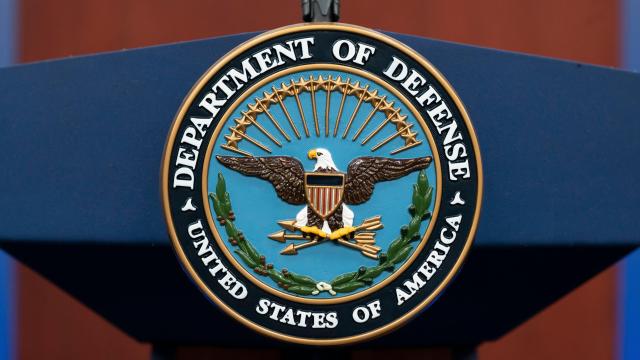Twenty-two civil rights groups including the American Civil Liberties Union, Demand Progress, and Electronic Frontier Foundation have signed a letter accusing the Pentagon and the executive branch at large of exploiting a legal loophole to surveil Americans absent congressional oversight or approval from the courts.
The Fourth Amendment generally prohibits the government from bypassing judges while demanding access to mobile phone data tracking Americans’ whereabouts. But the Biden administration, following in the footsteps of its predecessor, seems to have grown comfortable with the idea of buying its way around the Constitution.
The rights groups and their letter pursue a rather small goal. While several have already called for banning government purchases of sensitive personal data, this week, they are working to achieve only the barest modicum of transparency. That is: requiring the Pentagon to disclose purchases of data originating in the U.S. that would otherwise be illegal to intercept or demand.
An amendment buried in a draft of next year’s military budget would accomplish precisely that. The Jacobs-Davidson amendment, approved by the House in July, would require the Pentagon to begin publishing annual reports describing the types of personal data it obtains “in exchange for anything of value.”
The requirements are far from burdensome, singling out specifically location data pulled from mobile phones and records of internet browsing and phone calls and text messages originating inside the United States.
In a bicameral letter to the chairs and ranking members of the two Armed Services Committees, each of whom holds significant sway over the final budget’s terms, the rights groups tendered their support for the amendment, saying the coalition’s singular goal is to “provide Congress and the public with only the information necessary to access the profound privacy consequences of the Department of Defence buying its way around the Fourth Amendment.”
Gizmodo sent inquiries to the members of the Senate Armed Service Committee last month asking whether the amendment had their support. Only two offices responded, and neither declared for it.
Rep. Warren Davidson, a Republican from Ohio — for whom the amendment is, in part, named — told Gizmodo last month that its requirements are far from radical. “I just says, look, you’re buying all this data — what are you buying? It doesn’t even ask why.”
Coauthored by Rep. Sara Jacobs, a Democrat of California, the Jacobs-Davidson amendment notably does not require the military to change anything about its practices, nor does it insist on any further auditing. “It’s benign,” Davidson added. “But it’s a first step towards transparency. People should know what the Department of Defence is buying.”
“This amendment is critical to enabling congressional, judicial, and public oversight because this unconstitutional checkbook surveillance currently occurs without any Congressional or judicial authorization or oversight whatsoever,” Sean Vitka, senior policy counsel at Demand Progress, told Gizmodo. “This rapidly expanding practice represents an enormous and irreversible threat to constituents’ right to privacy.”
“By preserving the modest transparency requirement included in the Jacobs-Davidson amendment, we can illuminate to what extent the government is buying its way around the Fourth Amendment,” added Vitka. “All Senators should support the Senate companion introduced by Senators Wyden and Daines. The Senate Armed Services Committee must keep this language in the NDAA.”
Some of the letter’s other cosigners include the Brennan Centre for Justice at NYU School of Law, the Council on American-Islamic Relations, Fight for the Future, Free Press, FreedomWorks, and the National Association of Criminal Defence Lawyers. (A full list of the signers can be found here.)
Already, 2022 has seen a wave of calls to action around the government’s seemingly endless thirst for Americans’ personal information; predominantly, location data extracted from otherwise ordinary apps used by millions to accomplish mundane tasks like purchasing coffee and monitoring road conditions.
Two weeks ago, another California Democrat, Rep. Anna Eshoo, urged the Federal Trade Commission to investigate newly revealed software widely in use by police departments tracking Americans’ mobile phones and mapping their movements “months back in time.”
“Consumers do not realise that they are potentially nullifying their Fourth Amendment rights when they download and use free apps on their phones,” Eshoo said. It’s hard to imagine, she added, that given the option, anyone would agree to this.
